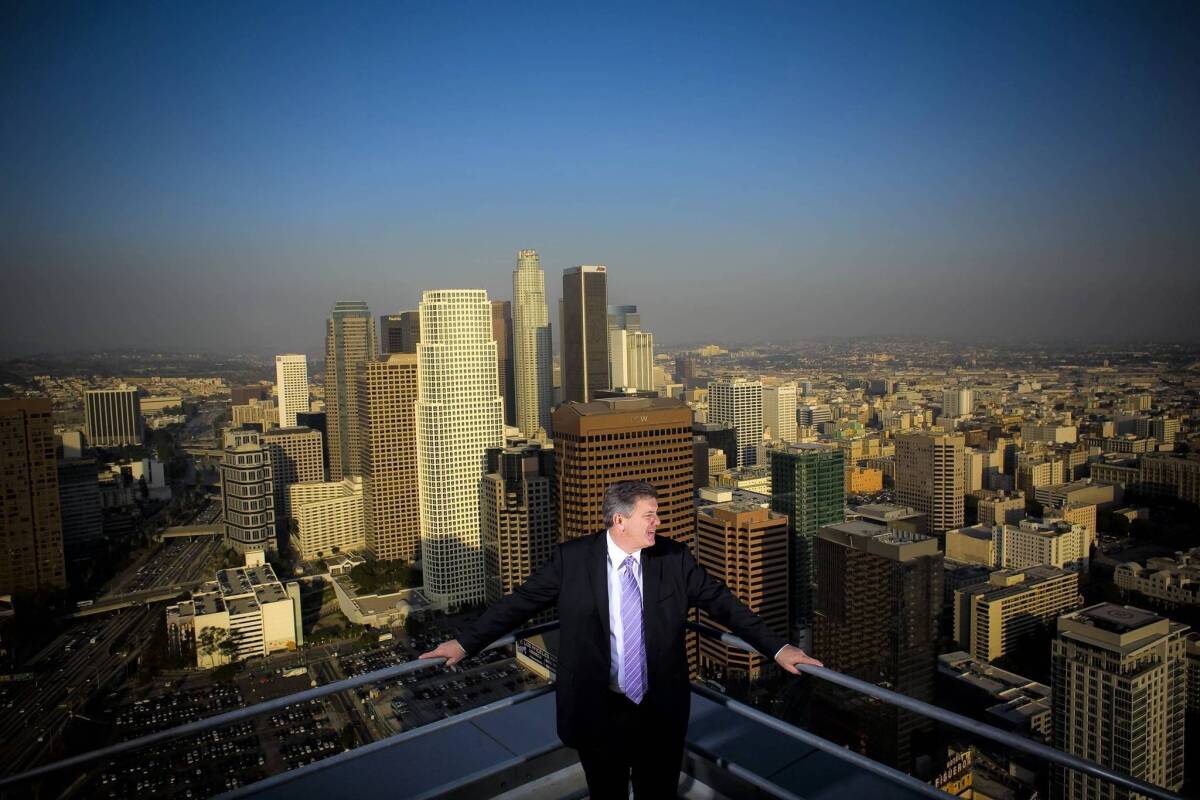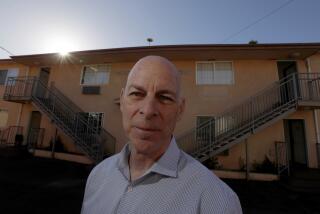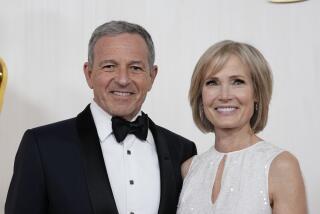Tim Leiweke wove AEG into the fabric of L.A.

In a city reeling from earthquakes, riots and a deep recession, Tim Leiweke emerged as a powerful force in Los Angeles.
He made his mark in 1999, opening Staples Center in a moribund section of downtown. Then the L.A. Live complex, which changed the downtown skyline for the first time in a decade.
Leiweke’s departure Thursday as head of entertainment giant Anschutz Entertainment Group sent ripples through not only L.A.’s business community but also its civic and political circles. A boisterous, sometimes showboating salesman who most recently led the effort to bring the NFL back to Los Angeles, Leiweke had a flair for stagecraft and a track record of giving to charities and election campaigns.
“He created the company. He grew the company. He operated the company. And in order to do that he became a political and philanthropic force,” said real estate developer Steve Soboroff, an early supporter of Staples Center.
Leiweke, 55, declined to discuss his future. “Right now, I’m going to take a deep breath and enjoy life and then I’ll talk next week,” he said.
Leiweke has been the charismatic public face of both AEG and downtown’s revival, known for crossing political boundaries while pursuing complicated sports and entertainment projects. Although company owner and Denver billionaire Philip Anschutz is politically conservative, Leiweke forged ties with Democratic politicians, unions and environmental groups.
He secured support for the downtown stadium from the Natural Resources Defense Council after promising that a large share of ticket buyers would not take cars on game day. And he traveled to Sacramento with Maria Elena Durazo, the top official at the L.A. County Federation of Labor, to secure passage of a law that accelerated the timeline for legal challenges to its stadium plans.
Durazo said Leiweke set a new precedent for how closely developers work with labor unions. Although she once suggested he run for public office, he waved away the idea. If he changes his mind, “I would be there to support him,” she added.
At City Hall, Leiweke played a pivotal role in decisions that went well beyond sports and real estate.
In 2006, AEG was the biggest donor to a ballot measure that weakened term limits for the 15-member City Council, allowing several incumbents to stay in office an additional four years. Two years later, the company urged business leaders to give six-figure sums to the campaign for Proposition S, Mayor Antonio Villaraigosa’s telephone tax measure. It passed.
In recent months, Leiweke was an enthusiastic booster of Proposition A, the sales tax hike that went down in defeat last week. He and AEG gave more than $127,000 to the campaign to pass the tax, which city politicians described as crucial for addressing the city’s ongoing budget crisis. Only a city public employee union spent more.
“I don’t believe there’s been a ballot initiative in Los Angeles that he has not taken a leadership role in,” said Gary Toebben, president and chief executive of the Los Angeles Area Chamber of Commerce, which also supported the sales tax hike. “He clearly understands that what is good for the community is good for AEG.”
As he navigated the city’s cumbersome approval process, Leiweke frequently played to the cameras. When AEG filed the environmental impact report for its stadium, the company wheeled all 16 volumes of the report into City Hall in front of cheering supporters. When the stadium deal was being reviewed by council members, he brought along high school football players and workers with the International Brotherhood of Electrical Workers, a union that also spends big in city elections.
AEG officials “have learned to use entertainment, the thing that they’re best at, for lobbying as well,” Toebben said.
Toebben praised Leiweke for involving his company in an array of civic activities, such as cancer research and the push for a new downtown streetcar. AEG and its foundations have given more than $85 million to nonprofit groups and charitable initiatives, according to a company spokeswoman.
Still, the company’s outsized influence has prompted complaints from taxpayer watchdogs, who question whether the city has negotiated the best deals with the company. AEG also has been criticized by activists who fear its stadium will hurt working-class renters nearby.
Larry Gross, executive director of the nonprofit Coalition for Economic Survival, said AEG’s political donations have enabled Leiweke to get “whatever he wanted.” “The City Hall power structure really bent over backwards to accommodate” the company, he said.
Gross accused Leiweke of ignoring neighborhood complaints until a coalition of anti-poverty groups sued. AEG later settled, offering to create a $15-million housing trust fund.
Those concerns were not shared by Councilwoman Jan Perry, who worked closely with Leiweke and AEG. She credited Leiweke and his company’s projects with creating jobs and attracting new restaurants, bars, condominiums and hotels.
“He was the catalyst for the revival of downtown,” Perry said.
In 2005, Perry and her colleagues voted to allow AEG to keep up to $270 million in new tax revenue generated by L.A. Live’s hotels over 25 years. In last year’s stadium deal, AEG agreed to demolish and rebuild a portion of the city’s convention center, which is next to Staples Center.
Those partnerships have not prevented Leiweke from playing hardball at times. When City Atty. Carmen Trutanich attempted in 2009 to delay AEG’s installation of outdoor signs at its downtown movie theaters, Leiweke marshaled an army of supporters — and several council members — to denounce him.
Two years later, Leiweke warned he might call off the NFL stadium project if the council did not approve the deal before its August recess. The council didn’t meet that deadline but moved ahead months later.
More to Read
Sign up for Essential California
The most important California stories and recommendations in your inbox every morning.
You may occasionally receive promotional content from the Los Angeles Times.












